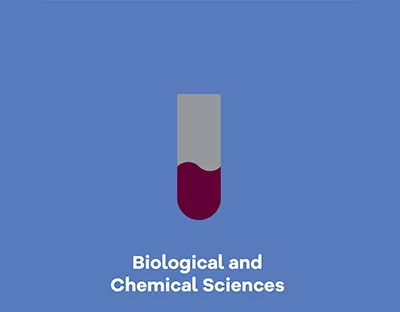Key Info
Bachelor of Science in Biomedical Science
Entry route(s):
How do I study Biomedical Science at UL?
The Biomedical Science programme will be available as an option to students who have chosen the Bioscience route and after entry through LM123. After successful completion of Year 3 of Bioscience, students will have the option to transfer to the School of Medicine for the 4th and final year of their undergraduate degree. After successful completion of all modules, students will graduate with a BSc in Biomedical Science.
Learn more about our courses and upcoming events
What you will study
By entering through LM123, you will study a broad common first semester and will undertake specific modules in the area of chemistry, biology, maths and physics. Subsequently, the second and third year of the Bioscience programme will provide you with a strong foundation in the understanding of biochemical systems and microbial technology . The tailored 4th year Biomedical Science exit route will provide you with the fundamental knowledge and practical skills to gain an understanding of the importance of working partnerships between scientists and healthcare professionals, allowing you to pursue a successful career in the area.
|
|
Semester 7 |
|
Semester 8 |
|
BY4037 |
Pharmacology and Drug Development |
BY4038 |
Cancer Mechanisms |
|
BM4041 |
Mammalian Tissue Architecture, Structure and Function |
BY4048 |
Advanced Cell and Molecular Biology |
|
BM4031 |
Clinical Medicine and Clinical Skills |
BC4008 |
Immuno and DNA Techniques |
|
BM4051 |
Diagnostic Techniques and Practices |
BM4032 |
Drug Delivery |
|
BM4061 |
Biomedical Science Final Year Project Part 1 |
BM4042 |
Biomedical Science Final Year Project Part 2 |
Entry requirements
| Additional considerations |
Please refer to the entry requirements for |
|---|---|
| Non-EU Entry Requirements |
|
How to apply
| Where are you applying from? | How to Apply |
|---|---|
| Ireland | Irish students must apply to UL via the CAO. More information can be found here. |
| The UK | Students who have completed their A-Levels can apply to UL via the CAO. More information can be found on the Academic Registry website. |
| The EU | EU Students can apply to UL via the CAO. More information can be found on the Academic Registry website. |
| Non-EU country | If you are outside of the EU, you can apply for this degree here. |
Fees and funding
Student course fees are broken into three components - Student contribution, Student Levy and Tuition Fees.
A number of illustrative examples of fees for this course based on the current fee levels have been set out in the tables below.
An explanation of the components, how to determine status and the criteria involved is provided below the examples as is a list of possible scholarships and funding available.
EU Students with Free fees status in receipt of a SUSI grant
| HEA pays | Tuition Fees | €4,262 |
| SUSI pays | Student contribution | €3,000 |
| Student pays | Student Levy | €102 |
| Total | €7,364 |
EU Students with Free fees status not in receipt of a grant
| HEA pays | Tuition Fees | €4,262 |
| Student pays | Student contribution | €3,000 |
| Student pays | Student Levy | €102 |
| Total | €7,364 |
Students with EU fee status not in receipt of a grant
| Student pays | Tuition Fees | €4,262 |
| Student pays | Student contribution | €3,000 |
| Student pays | Student Levy | €102 |
| Total | €7,364 |
Non-EU Students
| Student pays | Tuition Fees | €21,798 |
| Student pays | Student Levy | €102 |
| Total | €21,900 |
Student course fees are comprised of the following components:
Student Contribution
Annual charge set by the government for all full-time third level students. All students are liable unless they have been approved for a grant by Student Universal Support Ireland (SUSI). Please refer to https://www.studentfinance.ie to determine your eligibility for a grant and for instructions on how to apply. The current student contribution is set at €3000.
Student Levy
All students are liable to pay the Student Levy of €102. Please note the Student Levy is not covered by the SUSI Grant.
Tuition Fees
These are based on Residency, Citizenship, Course requirements.
Review the three groups of criteria to determine your fee status as follows
-
Residency
- You must have been living in an EU/EEA member state or Switzerland for at least 3 of the 5 years before starting your course
-
Citizenship
- You must be a citizen of an EU/EEA member state or Switzerland or have official refugee status
-
Course Requirements
(all must be met)
- You must be a first time full-time undergraduate (Exceptions are provided for students who hold a Level 6 or Level 7 qualification and are progressing to a Level 8 course in the same general area of study).
- You must be undertaking a full-time undergraduate course of at least 2 years' duration
- You cannot be undertaking a repeat year of study at the same level unless evidence of exceptional circumstances eg serious illness is provided (in which case this condition may be waived)
Depending on how you meet these criteria your status will be one of the following -
- Free Fee Status: You satisfy all three categories (1, 2 and 3) and therefore are eligible for the Higher Education Authority’s Free Fees scheme.
- EU Fee Status: You satisfy both the citizenship and residency criteria but fail to satisfy the course requirements and are liable to EU fees.
- Non EU Fee Status: You do not meet either the citizenship or residency criteria and are therefore liable to Non EU fees.
More information about fees can be found on the Finance website
These scholarships are available for this course
| Title | Award | Scholarships Available |
|---|---|---|
| BD Science and Engineering Undergraduate Scholarship | €2,000 for one year | 6 |
| Johnson and Johnson WiSTEM2D Programme |
These scholarships are available for all courses
| Title | Award | Scholarships Available |
|---|---|---|
| All Ireland Scholarships - sponsored by J.P. McManus | €6,750 | 125 |
| Brad Duffy Access Scholarship | €5,000 for one year | 1 |
| Bursary for my Future Scholarship | €2,750 one off payment | 4 |
| Civic Engagement Scholarship | €1500 | 1 |
| Cooperative Education Award | 1 medal per faculty | |
| Elaine Fagan Scholarship | €1,500 | |
| Financial Aid Fund | ||
| Hegarty Family Access Scholarships | €5,000 for one year | 2 |
| Higher Education Grants & VEC Grants | ||
| Irish American Partnership Access Scholarships | €5,000 | 2 |
| Paddy Dooley Rowing Scholarship | €2,500 | |
| Plassey Campus Centre Scholarship Programme | ||
| Provincial GAA Bursaries Scheme | €750 | |
| Stuart Mangan Scholarship | ||
| The Michael Hillery and Jacinta O’Brien Athletics Scholarship | Various benefits equating to over €7,000 in value | |
| UL Sports Scholarships | Varies depending on level of Scholarship | Multiple |
Your future career
Career opportunities and Follow-on study
The students will graduate with a degree in Biomedical Science from the Graduate Entry Medical School and it is expected that because of the innovative and collaborative learning experiences that the student will receive, they will be well positioned for careers across Biomedical Science and BioPharma, including areas such as disease diagnosis, disease intervention and treatment monitoring. The graduating students will also be excellent candidates for MSc and PhD programmes in the health sciences area and will be well equipped for application to the graduate entry Bachelor of Medicine Bachelor of Surgery (BMBS) programme at UL and similar programmes nationally and internationally.

